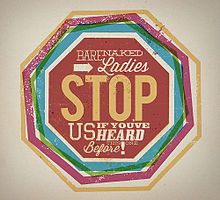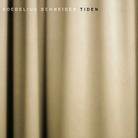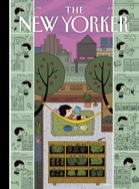 SOUNDTRACK: AMANDA PALMER-Amanda Palmer Performs the Popular Hits of Radiohead on Her Magical Ukulele (EP) (2010).
SOUNDTRACK: AMANDA PALMER-Amanda Palmer Performs the Popular Hits of Radiohead on Her Magical Ukulele (EP) (2010).
 Amanda Palmer made an album of Radiohead covers ,as the title says, on her magical ukulele.
Amanda Palmer made an album of Radiohead covers ,as the title says, on her magical ukulele.
I love the retro cover (and the way Radiohead is written). It looks like a kitschy piece of nonsense. And yet, contrary to appearance, it is actually a very respectful and very enjoyable collection of covers. Despite the title, the album is not simply her on a ukulele, but the uke is the main instrument on most of the tracks, and it works surprisingly well to convey Radiohead’s particular brand of angst. And one nice thing is that I now know a lot more words to the songs.
“Fake Plastic Trees” is done entirely on ukulele, which works well as the original is quite stripped down. The ukulele gives it the appropriate kind of mournful angst. “High and Dry” adds a piano—just a simple one note backing sound in the beginning, but which contributes greatly to the song. Palmer sounds a lot like Aimee Mann here—understated and untheatrical–she has a lovely voice.
“No Surprises” is a song that starts simply so the ukuleles is well suited to it. As with the original , the song builds, but much more simply here, with a pretty piano melody. And her overdubbed voice works very well at the end.
“Idioteque” is absolutely great—she really captures the angst of the song and the ukulele in no way makes it a novelty—probably because the song is full of piano and great percussion. The fact that the original is so techie and her version is so analog and yet it sounds this good is really a testament to Palmer’s transcribing skills.
“Creep” is done only on ukulele but the real instrument is her voice—where she manhandles the melody and whips it to all her needs—it’s a bravura performance. “Creep” live (a bonus digital version) is a bit more dynamic than the studio version as she plays off the audience. And man she really shows off her voice at the end.
“Exit Music for a Film” opens on piano. And adds strings. And adds more and more (allowing Palmer to exhibit her inner showwoman to really wail on the song). Indeed, despite the title of the album, there is no ukulele on this track at all. And while that may be cheating, this version really sounds great.
Palmer continues to impress me, although as I said last time, I’m still not sure what her real music sounds like.
[READ: August 7, 2013] “O.K., Glass”
Gary Shteyngart was one of the first 100 New Yorkers to get to test drive Google Glass (you had to tweet why you wanted it and then pay $1,500). I was interested to read this because I like Shteyngart anyhow, but when I saw the reason why he wanted Glass—because his novel Super Sad True Love Story deals with people using a similar technology and he wanted to have a sense of what it would be like to use one for the upcoming movie version—I was even more intrigued. (I read an excerpt in The New Yorker and I remember that funny device—the äppärät being mind-bogglingly futuristic. I really need to read the novel before it becomes even less mind bending.
So he wears it out into New York. (He was supposed to wear it only about an hour a day but he was totally hooked and wore them all the time). And mostly he talks about how weird it is to have people (young people) approach him to talk about Glass. People are even taking pictures of him! He’s like a celebrity!
And of course he gets down to details—you twitch your head (what I imagine as the clicking of a mouse with your temple) to activate windows. There’s a scroll bar type thing on the temple of the glasses. But mostly you interact with it by saying “O.K., Glass” and then telling it what you want to do. (more…)

















